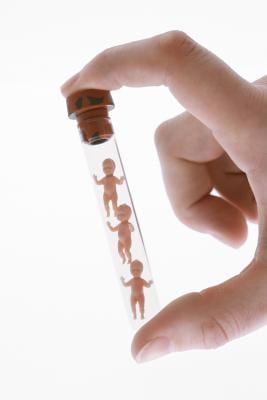While some couples become pregnant easily, others have no such luck and must, instead, struggle through infertility. Individuals who experience fertility challenges today are luckier than those of past generations, as there are now a host of medical treatments that these couples can try. If you are navigating the rocky road of infertility, consider some of the advanced options from which you can select to make your baby dreams a reality.
Assistance from Injections
Basic fertility treatments generally include oral medications. If these hormone-related medicines prove ineffective, your doctor may recommend that you move on to injection therapy, reports WebMD. Women who receive fertility-related injections will likely give themselves injections in the abdomen in the days leading up to the beginning of their menstrual cycles. While the specific contents of these injections vary depending upon the medicine used, all injectable fertility medications both promote egg release and prepare the body for the housing of a fertilized embryo.
Surgical Treatment Options
Depending upon the nature of your fertility challenges, surgery may prove the best option. Women who suffer from fallopian tube blockages often turn to surgery as a means of clearing up these obstacles. While all surgeries have their risks, surgery of this type is traditionally non-invasive. Most doctors employ a laparoscopic technique when completing surgery of this type, making a tiny incision through which they can insert tubes and operate, reports MayoClinic.com.
Assisted Reproductive Technology
Couples who experience no success with medication or surgery may need to advance to Assisted Reproductive Technology (ART) treatments. ART is a classification that houses an array of more complex, and as a result more expensive, infertility treatments. The most widely known treatment in this category is in vitro fertilization (IVF), a procedure in which an egg is fertilized outside the woman’s body and then implanted into her uterus. Surgical sperm aspiration, a technique in which sperm is removed from the male reproductive tract and then used to fertilize an egg, is a popular choice when fertility issues appear to be due to male dysfunction. Assisted hatching, is another option within this category. This procedure is akin to in vitro fertilization but it takes the process one step further and actually implants the embryo into the uterine lining.
Factors that Influence Success
Even with the scientific advances within the field, infertility treatments are still not 100 percent effective. A number of factors play a part in determining the success of infertility treatment efforts. These factors including the age of the mother, the health of the eggs and sperm, and the severity of the infertility challenges.
Risks of Treatment
Different risks are associated with infertility treatments. Women who use infertility treatments to become pregnant are significantly more likely to become pregnant with multiples than women who conceive without assistance. As WebMD reports, 80 percent of the multiple births in the United States can be attributed to the use of fertility treatments. Additionally, women who suffer infertility may also experience more challenging pregnancies, often as the result of carrying multiple babies.





